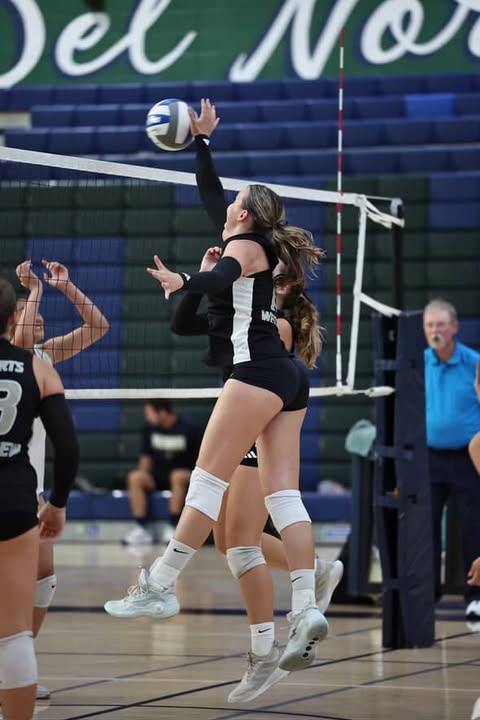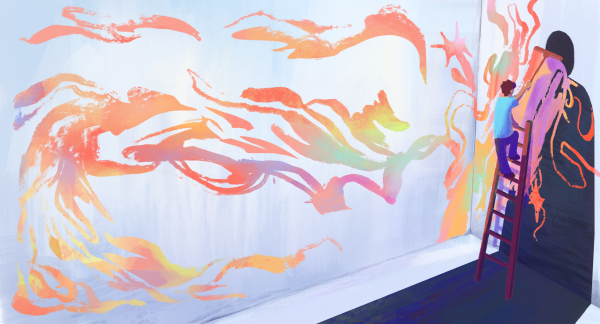
Madhav Ramaprasad (9) stood in his garage, getting ready to play his saxophone. As his fingers glided over the instrument’s keys, he took a deep breath and tuned out the world around him. When he blew into his saxophone, listening to its sound reverberate in the room, Ramaprasad felt happy; he felt free.
“I get goosebumps [when I play the saxophone],” Ramaprasad said. “I just focus on that moment, nothing else.”
Ramaprasad started playing piano when he was four and learned the saxophone in 5th grade for his elementary school band. Halfway into his first semester of high school, he decided to pursue a career in music after he figured out that he enjoyed giving music lessons while teaching the saxophone to his friend, and he also found a love for performing in Westview GOLD. His parents, however, wanted him to pursue a more easily profitable career in STEM, like his older sister.
“Since she’s the first child, she is my parents’ role model for me career-wise,” Ramaprasad said. “They want me to go down the same STEM route because they can be assured that I’ll turn out fine. Since I’m going down a different route than that, they’re unsure [of my choice] and they want me to stick to my sister’s path. Although they are supportive of me, they are still skeptical of my path and don’t take it as seriously.”
Shawn Whiteman is a Professor of Human Development Family Studies at Utah State University and the Associate Dean for Research and Innovation at the College of Education. In a 2003 study, Whiteman and colleagues found that parents often apply the lessons they learned while raising their first child to their second child.
“The older sibling [has more freedom] to choose activities and by virtue of not having someone in front of them and parents not having experiences,” Whiteman said. “Comparisons to our siblings provide [parents with] a reference for what worked well and what didn’t work well.”
For Dana Nguyen (9), doing the same activities as her brother, who’s five years older than her, has been a relatively positive experience.
“I follow what he does [and] what classes he took,” Nguyen said. “I feel like a lot of people view [that] in a bad way because they’re like ‘Oh, you have to be just like your brother,’ but me and my brother are really close and we share interests a lot, so any of the things he does, I don’t have a problem doing.”
One of these shared interests is badminton. Nguyen’s brother found a love for badminton during his freshman year of high school. After going to many of his practices with her family, Nguyen found the same love for badminton.
Aside from gaining new interests, Nguyen has also found joy in comparing her achievements to her brother’s, using them as motivation to do better. According to Nguyen, her brother and her are really close, so she always knows that if she ever struggles with anything, she can reach out to her brother for help.
“[I like to] see if I could be better at [things than him],” Nguyen said. “[I’m] seeing if I work harder, what result would come [and] whether I could be better or the same level as him. [It shows me] where I need to work better. Some [of these] goals would be to get a high GPA [like my brother’s].”
To Ramaprasad, these comparisons came from his parents and often led to him facing expectations that he felt he couldn’t meet.
“My sister’s kind of known for being an overachiever,” he said. “She always has straight A’s. I’m not an overachiever, but my parents kind of expect that from me.”
Ramaprasad said he felt that these comparisons also affected his parents’ happiness with his achievements. In 2023, Ramaprasad got into the All State Honor Band, a prestigious audition based honor band, to play saxophone. Even though Ramaprasad was proud of his accomplishment, felt that his achievement was undervalued by his parents.
“They were happy [that] I got into All State, but I can tell that they value my sister’s accomplishments a little bit more,” Ramaprasad said. “Whenever my sister had an accomplishment, whenever we had people come over, they’d always be talking about that and not really my accomplishments.”
According to Meghan Hamwey, the Director of Research and Evaluation at the NYC Department of Health and Mental Hygiene, although parents’ differential treatment of siblings is inevitable, a child’s perception of that difference in treatment could have both positive and negative impacts.
“It’s really about when you as the individual perceive it as problematic,” Hamwey said. “Realistically, it comes down to whether or not the parent then understands and realizes that and can maybe adjust, and that’s where we run into issues.”
A 2003 study conducted by Hamwey and Whiteman found that siblings who reported higher disfavorable parental treatment also reported greater sibling jealousy.
“[One theory says that] we’re more likely to look at siblings as models, so someone we want to emulate, someone we want to be like, someone that we’re learning from, when we have a warmer relationship with them,” Whiteman said. “If that theory holds, then we’ll be making more comparisons as a byproduct of that.”
For Millie*, who’s the youngest of four sisters, these comparisons plague her daily as she compares everything she does to her sisters.
Millie always looked up to her older sisters and often pursued the same activities, such as sports and writing, as them.
In high school, although Millie joined the classes and clubs her sisters recommended, she also wanted to try new things and form her own identity, apart from her sisters.
“Since I have three older sisters, they are always a few steps ahead of me in everything, so there’s always [a] standard or comparison in place,” Millie said. “I feel like I have to live up to what they’ve done or even be better than that, and [there’s] that constant pressure of having to do better. It just makes me feel worse sometimes even though there isn’t that explicit comparison being put on [me].”
According to Millie, this has led to her feeling competitive with her sisters.
“They’ve all struggled through their own things but they all found their passion and what they wanted to do,” Millie said. “That’s something I’ve always looked up to. All my sisters are really supportive of what I do [and] they never compare me with [them], but it’s just hard not to compare and be jealous of what they’ve [achieved].”
In Hamwey and Whiteman’s study, they found that during childhood, sibling jealousy is often caused by differences in ability and treatment.
“We tend to compare ourselves with folks that we share more qualities that we like that make it more salient for that comparison,” Whiteman said. “Social comparisons are how we learn about our placements in the world. It’s all about what we’re comparing ourselves to. If it has salience to our individual well-being or our individual sense of self, then it’s going to have consequences for our well-being.”
Hamwey said that although social comparisons don’t always produce the best outcomes for people, they can also be positive in some ways.
“Every person will make some form of social comparison at one point,” Hamwey said. “I think that idea of constantly comparing yourself doesn’t necessarily mean you’re going to have poor mental health because of that. There can be a component that can be healthy [where] you’re saying ‘That’s something I want to achieve.’ That [is] not necessarily unhealthy. There [are] good and bad [consequences] when you are making upward comparisons that are seemingly unhealthy or detrimental.”
Nguyen said she has also been able to find joy in competing with her brother.
“When you see someone doing something and it looks fun or they’re good at it and then you want to do that and see if you’re as good or better,” Nguyen said. “There are things that I’m better at [and things] he’s good at that I want to aspire after.”
Although Millie has been able to use self-comparison as motivation at times, she’s also found it to be overwhelming.
“There’s always that [question of] ‘Will I live up to that standard that they set before me?’” Millie said. “Sometimes it pushes me to want to do better in what I do and put in that extra effort, but sometimes it can be a detriment because of that constant pressure to do better. I feel like it just affects my performance in general. Too much pressure is just too much to handle at times. I don’t feel like I have my own identity sometimes because of that comparison that’s between me and all my sisters.”
According to Millie, a lot of this pressure came from her not wanting to let down her parents.
“Because [my siblings have] accomplished so much, if I underperform or don’t do as well as them, I’ll be seen as more of a failure than them,” Millie said. “I just feel like either I meet that standard or I go above. Going above is what I’ve always tried to do, but it’s hard to keep up with [them].”
Hamwey and Whiteman found that parental differential treatment was associated with depressive symptoms and varying feelings of self-worth in their 2003 study.
“[A] parent’s treatment clearly shows [their child] ‘Well, how invested are they in me?’” Whiteman said. “When we think we’re treated worse it has implications for [our] well-being.”
For Millie, the comparisons that people around her made between her and her sisters caused her to feel like she didn’t have her own identity.
“They call me my sisters’ names all the time, and what they’ve done in the past still influences how I get perceived too,” Millie said. “[Even so], I think I’m slowly finding my own identity. It’s been hard to get out of the old habit I’ve had of following what they do, but part of making my own identity is more focused on making my own goals and finding my own passions. I don’t want to avoid certain [activities] because my sisters did them before, but rather, I want to focus on my own growth, [make] my own goals, and set my own standards for myself.”


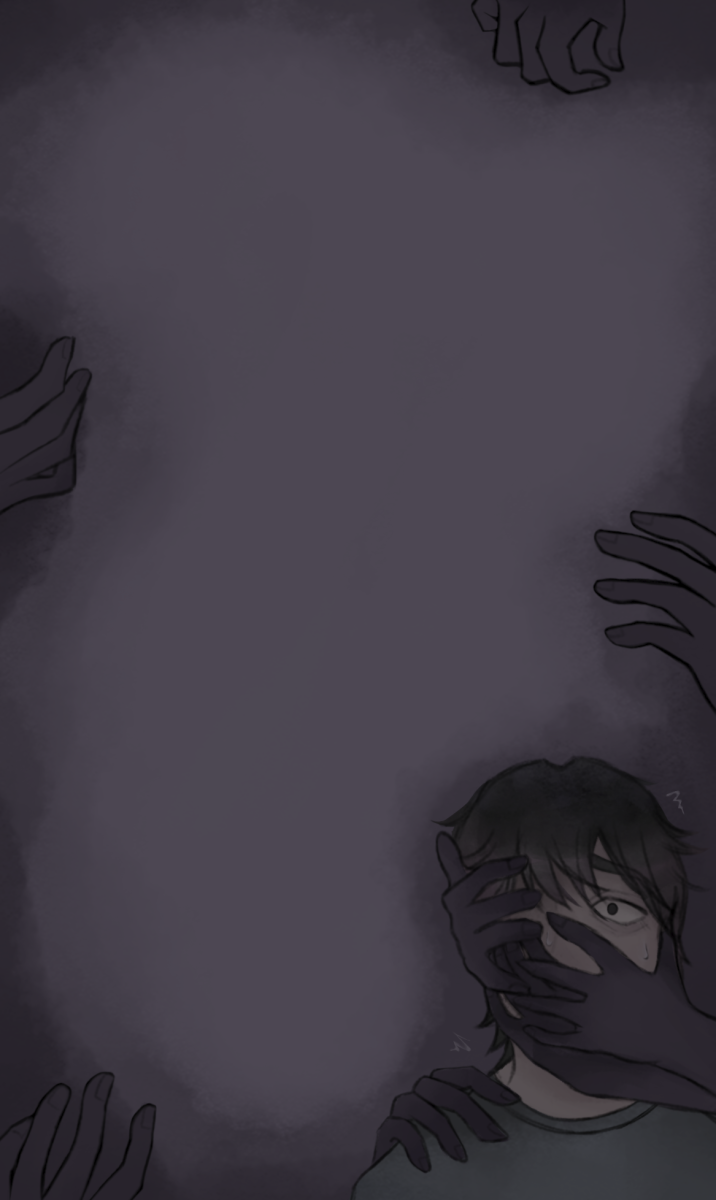
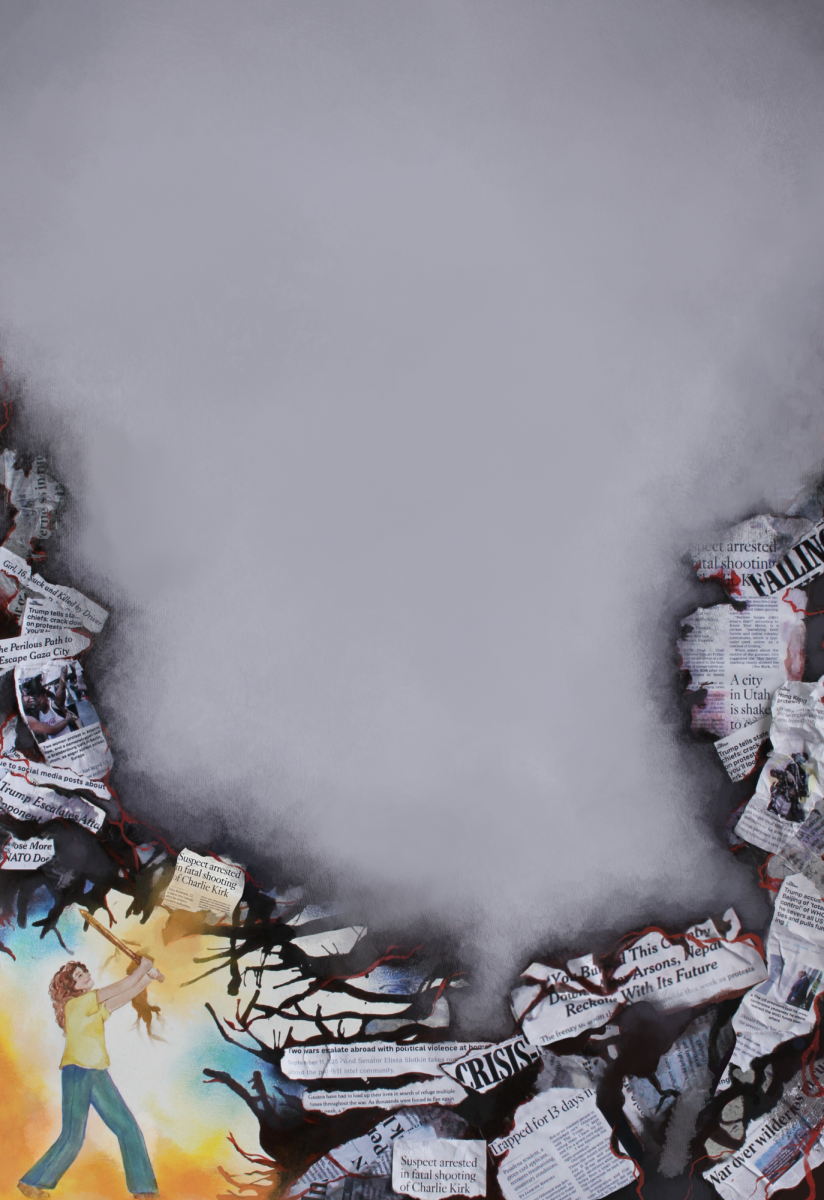


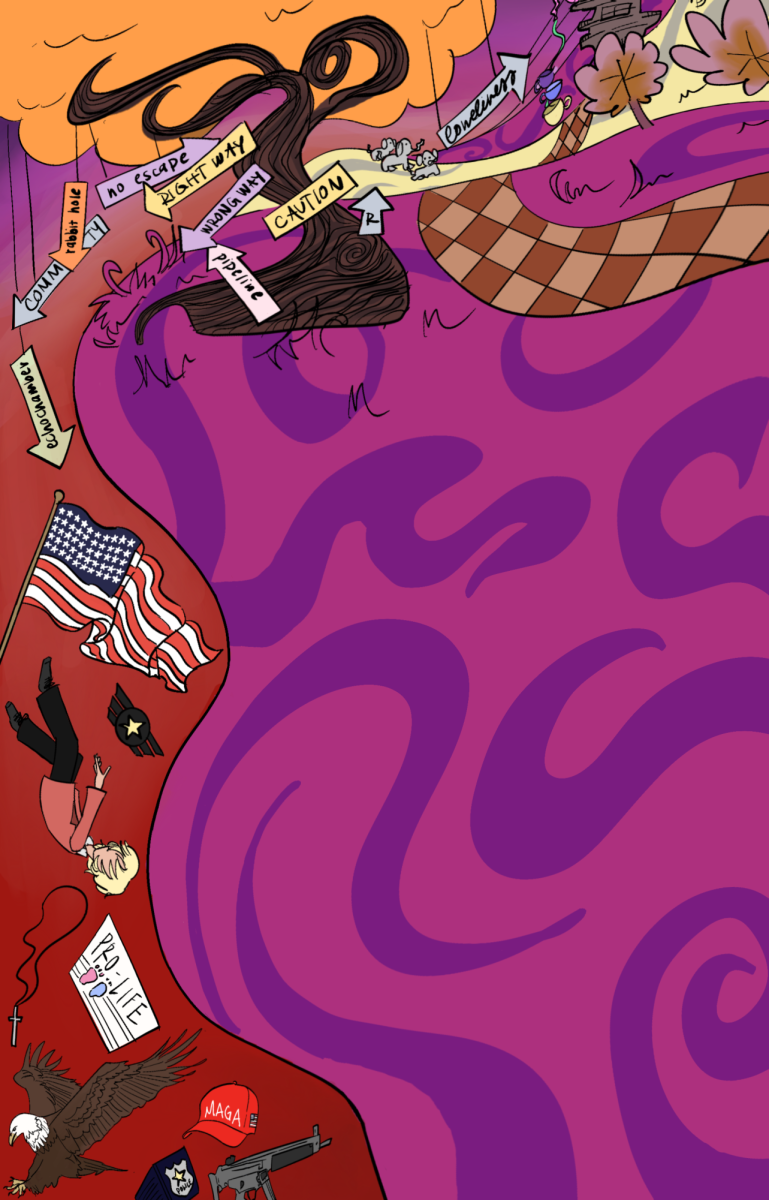


![Jolie Baylon (12), Stella Phelan (12), Danica Reed (11), and Julianne Diaz (11) [left to right] stunt with clinic participants at halftime, Sept. 5. Sixty elementary- and middle-schoolers performed.](https://wvnexus.org/wp-content/uploads/2025/09/IMG_1948-800x1200.png)

